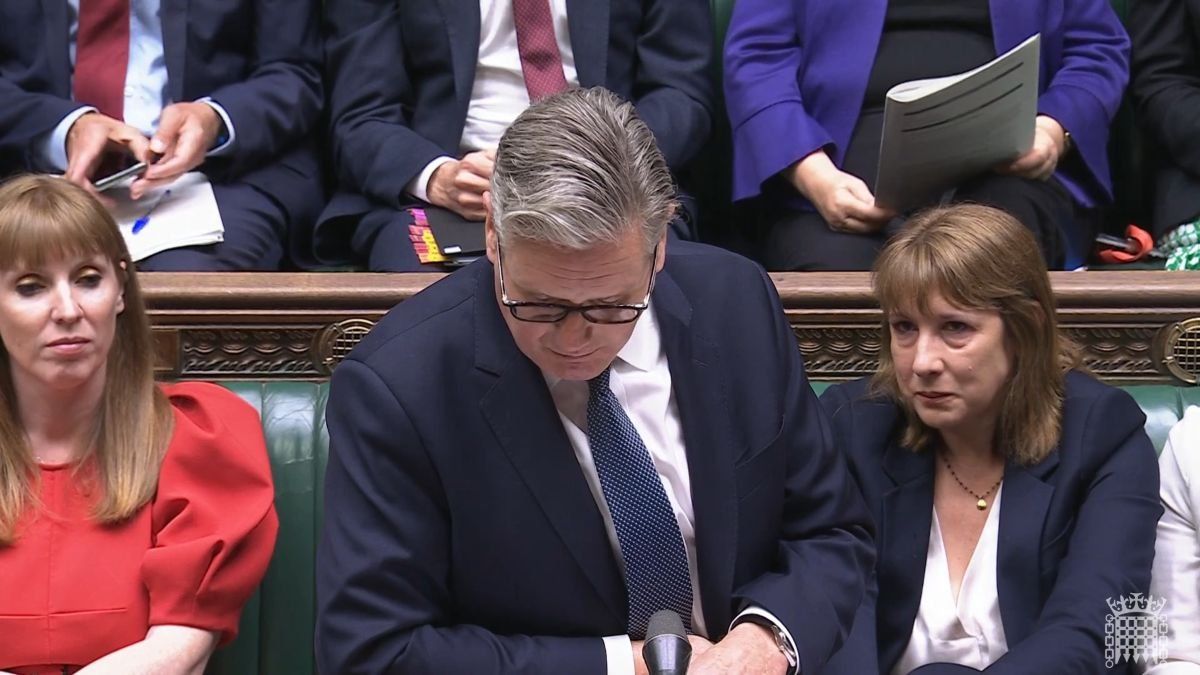A week is a long time in politics, so the expression goes. A year? Well that must feel like a lifetime – especially for UK Prime Minister Keir Starmer.
It was just over one year ago that Starmer took up residence at 10 Downing Street. With a 174-seat majority in parliament, and the opposition Conservatives in shambles after their worst election ever, the new Labour PM seemed ready to hit the ground running with a center-left agenda of better healthcare, lower immigration, and economic growth that benefits everyone.
He’s stumbled out of the starting blocks.
Just last week Starmer suffered a ringing defeat on a key agenda item, failing to pass welfare reforms that would have saved a mere £5.5 billion ($7.5 billion) by 2030 – just a small fraction of the overall government deficit. Members of the prime minister’s own party had objected to the cuts to disability benefits. To make matters worse, Starmer’s Chancellor of the Exchequer Rachel Reeves was seen crying in the House of Commons after the government had to gut key provisions of the legislation.
The debacle reflected larger problems for the prosecutor-turned-politician. Starmer has failed to revive the UK’s long-sputtering economy, struggled to make good on a promise to stop illegal migrant crossings by boat from mainland Europe (they are actually rising), and had little-to-no effect on long waits for National Health Service appointments and treatments. These issues have overshadowed the prime minister’s successes elsewhere, notably the trade deals with the US and India.
The result: the Labour Party is now polling at just 24%, and Starmer’s net approval rating is a crushing -40.
“I think of him more as a barrister than a politician,” Lord Gavin Barwell, who was former Prime Minister Theresa May’s chief of staff, told GZERO. “You deal with issues sequentially, like a barrister deals with one case at a time, [but then] you don’t have any kind of overall narrative about what the government is for.”
To be fair to Starmer, he inherited some of his troubles from his predecessors. The UK’s challenging fiscal situation and the turbulent international environment would be hard for any prime minister to address within a year. What’s more, while the Conservatives are in the wilderness, there is a resurgent opposition group in the form of Nigel Farage’s nativist Reform UK. It is now polling ahead of both Labour and the Tories, the two parties that have held a duopoly on power in the UK for nearly a century.
Even so, the prime minister has often been his own worst enemy. Polling data from the opinion-research firm Early Studies suggests the government’s priorities haven’t aligned with those of the voters, especially when it comes to cost of living – 15% of voters said it’s their top concern, making it the biggest singular issue of all, yet it attracts just 1% of parliamentary attention. What’s more, Starmer’s communication with Labour backbenchers has been lacking, so rebellions – like the one on the welfare bill – occur more frequently than they should.
“I've heard from a few Labour MPs that they've never spoken to him,” says Jon Nash, a fellow at the London-based think tank Demos. “It does feel like there’s a bad level of organization within the party.”
Ominous signs for centrists. Starmer’s struggles highlight a broader issue that centrist parties across the world face: they tend to work too methodically and timidly within a system that a growing number of voters think is broken, all-the-while focusing on short-term issues while glossing over longer-term ones. The Tony Blair Institute for Global Change conducts focus groups in most major Western democracies, and has found that the public’s frustrations are broad-based.
“There are these deep systemic trends where basically, voters and non-voters alike, just feel that around them is this pervasive sense of decline,” Ryan Wain, an executive director at TBI, told GZERO. “It’s mainstream politics’s job – I include the center-right in that, as well as the center left – to arrest and reverse that decline.”
And if centrist parties don’t reverse that decline, others are waiting in the wings to take their place, says Jon Nash of Demos.
“That inability to get anything done is what opens up the door to others coming along and saying, ‘Look, we’re going to do things differently. Vote for me, I’m a businessman,’ or, ‘vote for me, I’ll do something radical.’”
